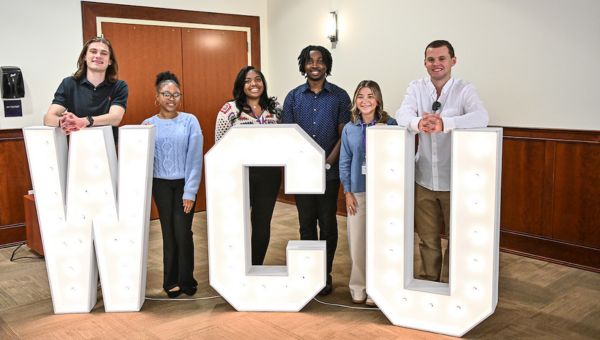Integrating Career Readiness into the Campus Culture
 The summer issue of the WCU Magazine focuses on how the University prepares students for careers.
The summer issue of the WCU Magazine focuses on how the University prepares students for careers.
“Preparing students to launch into the world and into their careers is a team sport,” says Jennifer Rossi Long ’05, who leads campus-wide career preparation efforts at the University as the executive director of the Twardowski Career Development Center. The center is celebrating its 60th anniversary this fall.
Students have to take the initiative regarding their career journeys and there’s plenty of support across campus for them not only to prepare for professional roles but to explore companies, fields, and industries through experiences they can put on their resumes. Internships, practicums, research, job shadowing, and volunteer experiences all lead to better-prepared graduates and, in the case of internships, higher average starting salaries according to the National Association of Colleges and Employers (NACE). Students who complete internships and learn to network report finding their degrees more relevant.
The career center is the campus career hub, offering job fairs and meet-ups, resume review days, information tables, and workshops. Students use the Handshake career platform to connect with the center’s staff and student staff; research internships and job opportunities; and explore employer events that happen on-campus, off-campus, and virtually. In-person consultations with counselors are always an option, but integrating career planning into the campus culture means the center’s services are not confined to its physical location in Lawrence Center.
Long reports that her staff engages with 49% of the 17,000+ students enrolled.
Faculty are very involved in career development and are integral to many experiential learning opportunities, she emphasizes. “Faculty helped developed the survey that examined the state of career readiness for our students. The collective contributions of more than 1,000 voices helped drive how we focus our work.”
The center partners with WCU’s Academic Affairs division to provide faculty with support for career assignments and D2L (online) modules. The center’s staff serve as liaisons and will visit classrooms for training and activities.
Long says that building career preparation into the classroom and campus culture can “scaffold getting students ready to launch. We’re trying to move career development out of the optional space and infuse it more into the campus experience.”
Read more in the summer issue of the WCU Magazine.
